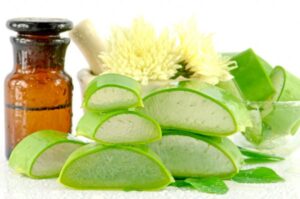hair loss with Vitamin? exist! Hair loss is a common problem that can be improved with vitamin and mineral supplementation.
Because these nutrients are important for normal cell function. When nutrients are insufficient, they can hinder these activities.
Vitamins can prevent hair loss, then you can make the right choice. Do you suffer from this problem or do you know someone? To learn more, keep reading!
Índice de Conteúdo
Types of Hair Loss
Androgenic Alopecia (AA)
According to the Brazilian Society of Dermatology (SBN). AA affects women relatively often, and AA is a genetically determined type of hair loss.
Although it is called an “androgen,” in most cases, the level of male hormones is normal during the test.
This disease is also called baldness and starts to develop during puberty. During this period, the hormones stimulate.
Appears and triggers with each hair cycle, the hair gradually becomes thinner and the scalp becomes more open.
Telogen effluvium (TE)
SBN describes TE as a condition in which daily hair loss increases. This is mainly reflected in the shower floor after showering and can be seen on the brush even when combing your hair.
There are two types of acute TE and chronic TE. In addition to this symptom, itchy scalp can also occur in ET, especially in the back region.
The acute form differs from the chronic form in terms of long-term problems because over time the patient's basal hair is longer and shorter.
Minerals and vitamins to prevent hair loss
Do you have or know someone with androgenic alopecia, telogen effluvium or any other type of fall? These diseases can shake – and a lot – someone's self-esteem.
Since hair is directly related to beauty. Therefore, we have a list of minerals and vitamins to prevent hair loss below:
Sulfur
Sulfur is not only good for hair, it is also called “beauty mineral” and is also good for skin and nails.
The special treatment of the threads is very important, as it helps in the synthesis of keratin, which has the function of protecting and providing resistance to the threads.
According to expert classification and patient self-assessment, it is recommended as it is beneficial in the treatment of hair loss.
Iron and Vitamin C
According to a 2018 scientific paper, patients suffering from androgenic alopecia or endogenous exudate.
They must make sure they are not iron deficient. In turn, they also need to check their vitamin C intake.
This helps to optimize the absorption of vitamin C. These problems are caused by a lack of iron in the human body (which is the most common nutritional deficiency in the world).
Leading to anemia. This disease reduces the hemoglobin produced by Human Body. Blood circulation disorders and hair loss become one of the symptoms.
Zinc
A lack of zinc in the body encourages the rise of free radicals, which leads to oxidative stress.
This in turn impairs the body's antioxidant capacity and can cause hair loss.
Furthermore, protein synthesis is also affected, which does not favor the production of keratin. "The role of vitamins and minerals in hair loss: a review".
Research shows that zinc supplementation can be an adjunct therapy for low-mineral hair loss patients. O blood flow and traditional therapies cannot succeed.
D vitamin
Studies have shown that supplementing low levels of vitamin D in the diet can improve androgenetic alopecia and resting vulva symptoms.
One explanation is that vitamin D regulates the growth and differentiation of keratinocytes, which leads to keratin synthesis; other than that.
Studies show that the D vitamin may be involved in hair aging, leading to premature or infantile aging. adult.
Therefore, supplementing this micronutrient can also help improve premature aging.

